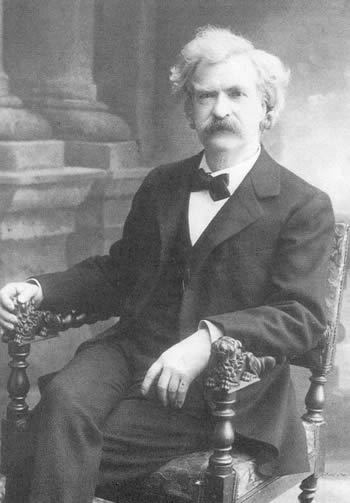Related Topics
Right Angle Club 2009
The 2009 proceedings of the Right Angle Club of Philadelphia, beginning with the farewell address of the outgoing president, John W. Nixon, and sadly concluding with memorials to two departed members, Fred Etherington and Harry Bishop.
Mark Twain in Vienna

|
| Mark Twain in Vienna 1897 |
Tom Tauber, the past president of the Austro-American Society of Pennsylvania, recently entertained the Right Angle Club with a description of Mark Twain's two-year stay in Vienna, something few Americans are much aware of. Tom is President of a local aerospace firm, an industry which is also under-recognized in Philadelphia, although there is a rich and colorful history of seaplane, helicopter and aeronautical engineering in our city.
Mark Twain went broke after the Civil War<, plunging too heavily in his publishing firm, and in the development of an ill-fated type-setting machine. Somehow, his friends had learned that Twain had a fabulous following in Europe generally, but particularly in Vienna. When his daughter developed a hankering for piano lessons from a famous Viennese teacher the family packed up and moved into a many-room apartment in a hotel, out of which he ventured to give many lectures of a witty sort. The Europeans simply loved to be satirized, and during 1897-99 they flocked to hear him identify their weaknesses.
Because we had not yet discovered progressive income taxation, two years was enough time to get his finances and retirement in order, and not quite enough time for his unrestrained mockery to catch up with him. That he was pushing his luck is evident from his mixing into anti-semitism, the main public topic of turn-of-the-century Vienna. Many of the forty newspapers were owned by Viennese Jews, but sometimes the partisanship was independent of the ownership of the papers. Mark Twain's real position on the matter is indicated by his prominence in the Jewish press during the early part of his stay, and his switch to the anti-Jewish press, later on, . The central theme of the latter part of his life was that he was in financial trouble, and had to do whatever it took to get out of it. A
Originally published: Thursday, November 19, 2009; most-recently modified: Thursday, May 23, 2019